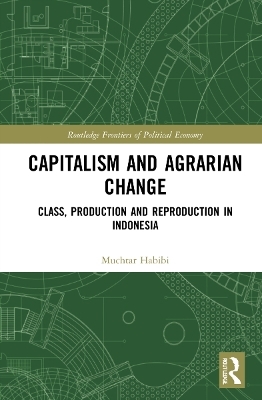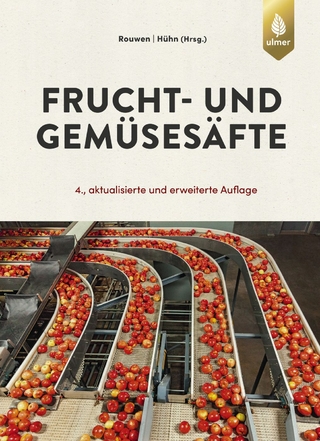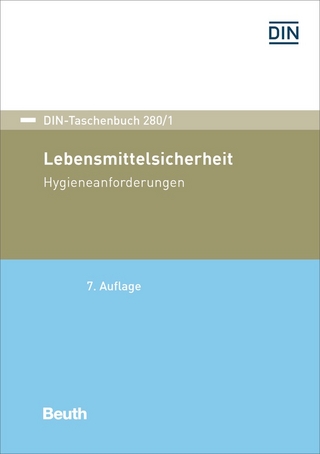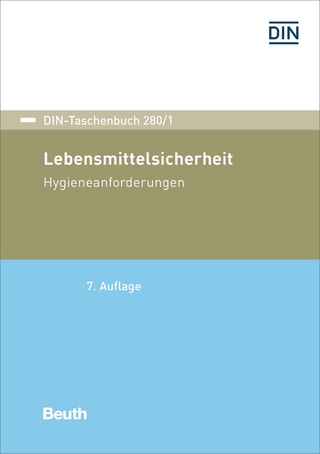
Capitalism and Agrarian Change
Class, Production and Reproduction in Indonesia
Seiten
2024
Routledge (Verlag)
978-1-032-21218-0 (ISBN)
Routledge (Verlag)
978-1-032-21218-0 (ISBN)
Capitalism and Agrarian Change challenges the view that small-scale agricultural producers are assumed to be a single social class pitted against the state or corporation by demonstrating that under current capitalist social relations these agricultural producers have been differentiated into different agrarian classes by exploitation.
Small-scale agricultural producers in the peripheral world are often condescendingly assumed to be a single social class (‘the peasantry’) to be pitted against the state or corporation. This book challenges this rather idealistic view by demonstrating that under current capitalist social relations (competition, efficiency and productivity, and profit maximisation), these agricultural producers have been differentiated into different agrarian classes by exploitation. By comparing two different contexts of local agrarian change in Indonesia—rice cultivation in Java and oil palm in Sumatra—this book exposes the different class locations of the agrarian classes among petty agricultural producers and the class relations between them. These are often inextricably linked to gender, clanship and generational issues. The power of class dynamics crucially shapes how agricultural production in both rice and oil palm is organised. The share received by different agrarian classes from the production site then prominently shapes the different nature of class reproduction for each agrarian class. This analysis demonstrates that the different agrarian classes possess different capacities and responses in their relation to the state or corporations. Any real emancipation attempt in the Indonesian countryside (and beyond) must start from a proper understanding of these class dynamics. This book marks a significant contribution to the literature on agrarian change, the political economy of development, rural development and Marxist political economy.
Small-scale agricultural producers in the peripheral world are often condescendingly assumed to be a single social class (‘the peasantry’) to be pitted against the state or corporation. This book challenges this rather idealistic view by demonstrating that under current capitalist social relations (competition, efficiency and productivity, and profit maximisation), these agricultural producers have been differentiated into different agrarian classes by exploitation. By comparing two different contexts of local agrarian change in Indonesia—rice cultivation in Java and oil palm in Sumatra—this book exposes the different class locations of the agrarian classes among petty agricultural producers and the class relations between them. These are often inextricably linked to gender, clanship and generational issues. The power of class dynamics crucially shapes how agricultural production in both rice and oil palm is organised. The share received by different agrarian classes from the production site then prominently shapes the different nature of class reproduction for each agrarian class. This analysis demonstrates that the different agrarian classes possess different capacities and responses in their relation to the state or corporations. Any real emancipation attempt in the Indonesian countryside (and beyond) must start from a proper understanding of these class dynamics. This book marks a significant contribution to the literature on agrarian change, the political economy of development, rural development and Marxist political economy.
Muchtar Habibi is a Lecturer in the Department of Public Policy and Management, Faculty of Social and Political Sciences at the Universitas Gadjah Mada, Indonesia.
1 Introduction 2 Exposing Class Dynamics of Agrarian Change Under Capitalism 3 Agrarian Change in Indonesia and the State 4 Situating the Agrarian Change in Java and Sumatera 5 Class Dynamics of Agrarian Change in Java and Sumatera 6 Agricultural Production in Java and Sumatera 7 Class Reproduction in Java and Sumatera 8 Conclusion
| Erscheinungsdatum | 17.08.2022 |
|---|---|
| Reihe/Serie | Routledge Frontiers of Political Economy |
| Zusatzinfo | 29 Tables, black and white; 5 Line drawings, black and white; 5 Illustrations, black and white |
| Verlagsort | London |
| Sprache | englisch |
| Maße | 156 x 234 mm |
| Gewicht | 520 g |
| Themenwelt | Sozialwissenschaften |
| Technik ► Lebensmitteltechnologie | |
| Wirtschaft ► Allgemeines / Lexika | |
| Wirtschaft ► Volkswirtschaftslehre | |
| ISBN-10 | 1-032-21218-7 / 1032212187 |
| ISBN-13 | 978-1-032-21218-0 / 9781032212180 |
| Zustand | Neuware |
| Informationen gemäß Produktsicherheitsverordnung (GPSR) | |
| Haben Sie eine Frage zum Produkt? |
Mehr entdecken
aus dem Bereich
aus dem Bereich
Technologie, Chemie, Mikrobiologie, Analytik, Bedeutung, Recht
Buch | Hardcover (2023)
Verlag Eugen Ulmer
140,00 €
Hygieneanforderungen
Buch | Softcover (2023)
DIN Media (Verlag)
332,80 €


